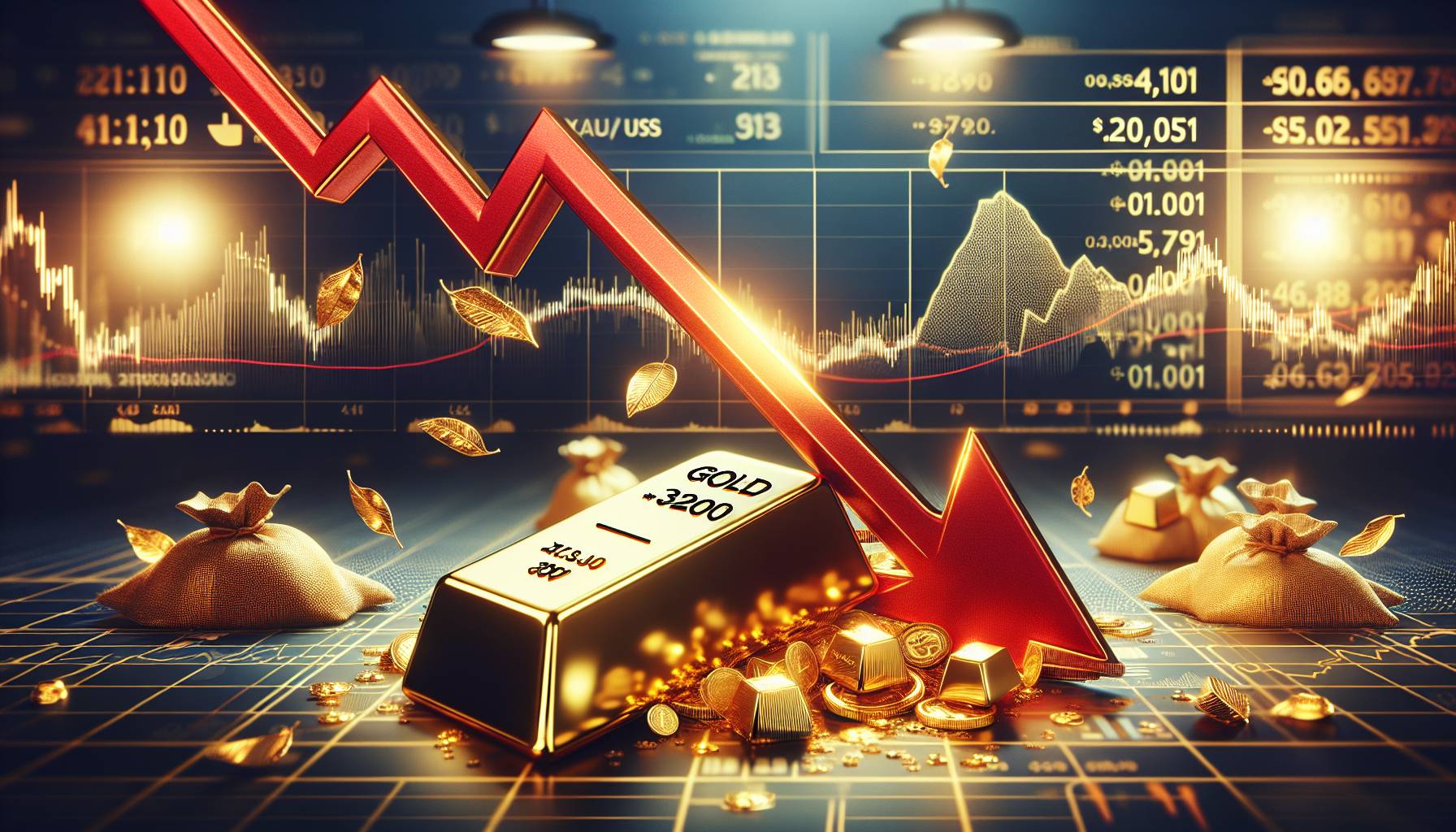Gold’s appeal amid economic uncertainty
As global markets continue to face volatility, gold has emerged as a preferred investment choice for many Japanese investors. The precious metal’s enduring reputation as a store of value is particularly attractive during periods of economic instability. With fears of a global slowdown mounting, individuals and institutions alike are turning to gold as a hedge against potential financial downturns.
Unlike equities or currencies, gold is not directly tied to the performance of any single economy, making it a reliable option when traditional markets falter. This characteristic has become increasingly important as trade tensions and geopolitical risks weigh heavily on investor confidence. In Japan, where economic growth has remained sluggish and interest rates are persistently low, gold offers an alternative that is both tangible and historically resilient.
Japanese investors are also responding to the weakening of the yen, which has made foreign assets more expensive and less appealing. In contrast, gold priced in yen has seen steady appreciation, further enhancing its attractiveness. The metal’s performance during previous financial crises has reinforced its image as a safe-haven asset, prompting a renewed interest among both seasoned investors and newcomers to the market.
Retail gold purchases have surged, with local dealers reporting increased foot traffic and higher transaction volumes. This trend is not limited to physical gold; exchange-traded funds (ETFs) backed by gold have also seen a notable uptick in activity. The shift reflects a broader sentiment that gold remains a dependable safeguard in uncertain times, particularly when other investment avenues appear increasingly risky.
Impact of U.S. tariffs on investor sentiment
The imposition of sweeping tariffs by the United States under President Donald Trump has had a profound ripple effect on global investor sentiment, particularly in export-driven economies like Japan. These tariffs, aimed at reshaping trade relationships and protecting American industries, have introduced a new layer of unpredictability to international markets. For Japanese investors, the escalating trade tensions between the U.S. and major economies such as China and the European Union have raised concerns about the long-term stability of global trade flows and economic growth.
As a result, many investors in Japan are reassessing their portfolios, seeking to reduce exposure to assets that are vulnerable to geopolitical shocks. The uncertainty surrounding future trade policies has made equities, especially those tied to international trade, appear increasingly volatile. This has led to a shift in investment strategies, with a growing preference for assets that are less susceptible to policy-driven market swings.
Gold has emerged as a key beneficiary of this shift. Its historical role as a hedge against geopolitical risk has made it an attractive option for those looking to preserve capital amid the unpredictability of tariff-related developments. The perception that trade disputes could escalate into broader economic confrontations has only strengthened gold’s appeal as a defensive asset.
In Japan, where the economy is heavily reliant on exports, the impact of U.S. tariffs is particularly acute. Concerns about reduced demand for Japanese goods abroad have led to a more cautious investment climate. Institutional investors, including pension funds and insurance companies, are increasingly allocating a portion of their portfolios to gold in an effort to mitigate potential losses from trade-related disruptions.
Moreover, the tariffs have contributed to currency fluctuations, with the yen experiencing periods of volatility in response to global trade news. This has further incentivised Japanese investors to seek refuge in gold, which is seen as a more stable store of value during times of currency instability. The combination of trade uncertainty and currency risk has created a compelling case for gold, reinforcing its status as a cornerstone of defensive investment strategies in Japan.
Rising demand for safe-haven assets in Japan
In recent months, Japan has seen a marked increase in demand for safe-haven assets, with gold standing out as the preferred choice among both retail and institutional investors. This surge is largely driven by a growing sense of caution in the face of global economic headwinds, including trade disputes, slowing growth in major economies, and persistent market volatility. Japanese households, traditionally conservative in their investment approach, are now turning to gold as a means of preserving wealth and ensuring financial security.
Local gold retailers have reported a significant uptick in sales, with many noting that customers are purchasing not only small bullion bars and coins but also jewellery with high gold content as a form of investment. This trend is particularly evident in urban centres such as Tokyo and Osaka, where economic uncertainty has prompted a shift in consumer behaviour. Rather than spending on discretionary items, more individuals are choosing to allocate their savings toward tangible assets like gold.
Financial institutions in Japan are also responding to this shift in sentiment. Banks and asset management firms have expanded their offerings of gold-related investment products, including gold-backed ETFs and savings plans that allow customers to accumulate gold over time. These products are gaining popularity among younger investors who are seeking alternatives to low-yield savings accounts and volatile stock markets.
Several factors unique to the Japanese market are contributing to this trend. The country’s prolonged period of ultra-low interest rates has made traditional savings vehicles less attractive, pushing investors to explore other options. Additionally, concerns about the long-term sustainability of Japan’s public debt and social welfare systems have heightened the appeal of assets that are perceived as independent of government policy and economic cycles.
Another key driver is the increasing accessibility of gold investments. Advances in digital platforms have made it easier for individuals to buy and sell gold online, often with lower fees and greater transparency than traditional methods. This has opened the market to a broader demographic, including tech-savvy millennials and first-time investors who may have previously viewed gold as an asset reserved for the wealthy or financially sophisticated.
For Australian observers, the Japanese experience offers insight into how economic uncertainty can reshape investment behaviour, even in a market known for its cautious approach. As global risks continue to evolve, the rising demand for safe-haven assets in Japan underscores the enduring value of gold as a strategic component of diversified portfolios.
Gold as a safe haven asset
Gold has long been regarded as a reliable store of value during periods of financial instability, and recent trends in Japan underscore this enduring appeal. As global markets face heightened volatility, Japanese investors are increasingly turning to gold to preserve capital and hedge against economic downturns.
With fears of a global slowdown intensifying, gold’s reputation as a safe haven asset is gaining renewed traction. The metal’s intrinsic value and limited supply make it an attractive option for those seeking to diversify portfolios and reduce exposure to riskier assets such as equities and currencies.
“Gold doesn’t rely on the performance of governments or corporations. In times of uncertainty, it becomes a financial anchor,” said a Tokyo-based bullion analyst.
In Japan, the surge in gold demand is reflected in rising retail purchases and increased activity in the physical bullion market. Investors are acquiring gold bars and coins not only for wealth preservation but also as a strategic response to currency fluctuations and geopolitical instability.
- Gold prices have remained resilient amid global market swings.
- Japanese yen volatility has further incentivised gold buying.
- Retail investors are favouring physical gold over paper assets.
For Australian investors, Japan’s gold-buying trend serves as a timely reminder of gold’s role in a balanced investment strategy. As global economic pressures mount, the case for holding physical gold as a defensive asset continues to strengthen.
Impact of global trade tensions on investor behavior
Escalating global trade tensions, particularly those stemming from the U.S.-China tariff standoff initiated under President Donald Trump, have significantly altered investor sentiment in Japan. The imposition of steep tariffs and retaliatory measures has disrupted global supply chains and injected a new level of uncertainty into international markets. Japanese investors, traditionally conservative, are responding by reallocating capital into assets perceived as more resilient to geopolitical shocks—chief among them, gold.
As trade disputes intensify, the risk of prolonged economic stagnation has prompted a shift away from export-reliant equities and into tangible assets. Gold, unaffected by trade policy or currency devaluation, is increasingly viewed as a strategic hedge. This behavioural shift is evident in the uptick in gold-related transactions across Japan’s major bullion dealers and online investment platforms.
“The trade war has made investors rethink their exposure to global markets. Gold offers a level of insulation that’s hard to find elsewhere,” noted a senior strategist at a Tokyo investment firm.
In response to these developments, Japanese households and institutional investors alike are diversifying their holdings. The Bank of Japan’s prolonged ultra-low interest rate policy has further diminished returns on traditional savings, making gold’s non-yielding nature less of a deterrent. Instead, its role as a store of value during trade-induced volatility is being prioritised.
- Gold demand in Japan rose by over 20% year-on-year in Q2 2023, according to local market data.
- Physical gold sales surged following each major tariff announcement between the U.S. and China.
- Investors are increasingly using gold to hedge against both currency depreciation and trade-related equity risk.
For Australian investors, the Japanese response to trade tensions highlights the importance of proactive portfolio adjustments in the face of global policy shifts. As trade disputes continue to ripple through financial markets, gold remains a compelling option for those seeking to mitigate downside risk and preserve capital across economic cycles.

